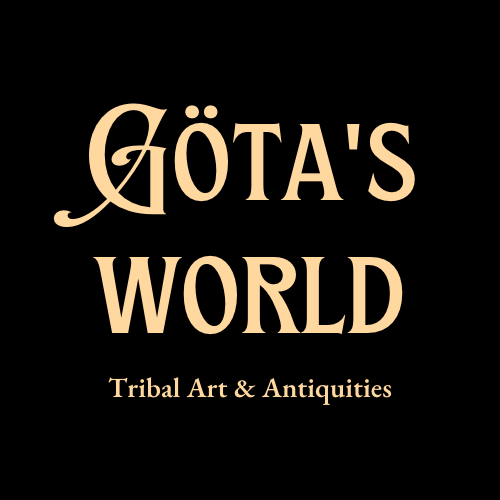Ewe Female Twin Figure (Venavi)
Ewe Female Twin Figure (Venavi)
Couldn't load pickup availability
Ewé people, early to mid-20th century, Togo, Benin or Ghana, West Africa
Magnificent and sensitively aged female twin figure, expertly carved from light-colored wood, most commonly the soft, fine-grained wood of the kapok tree. She stands firmly on both feet with legs slightly apart, her slender torso rising into gently rounded shoulders, pointed breasts, and long arms that hang elegantly at her sides. She is adorned with a necklace and beaded waistbands of orange and white glass beads—likely later additions—enhancing her presence and ritual character.
Her elongated cylindrical neck supports a head noticeably large in proportion to her body, a hallmark of Ewe sculptural aesthetics. The ovoid face features strong, expressive elements: a flat, broad, elongated nose, protruding almond-shaped eyes, and intricate scarification patterns on the forehead and cheeks. Her large pierced ears (ear ornaments now lost) and an elaborate coiffure painted in deep black complete the striking facial composition. Over time, the facial area has been partially worn away through repeated feeding, rubbing, and ceremonial washing—ritual actions expected for such figures. This intentional softening of the features also served a protective purpose: the Ewe believe that fully articulated facial features of powerful spirits can be dangerous to the living.
Among the Ewé, the birth of twins—known as venavi or venovi—is considered a profoundly auspicious event. Twins are understood to share a single, joint soul, making them spiritually immortal. When one twin dies, the surviving sibling is believed to be in danger due to the soul’s imbalance, oscillating between the world of the living and the ancestral realm. To restore this equilibrium, a venavi figure is carved to embody the deceased twin and is cared for as though alive—fed, bathed, anointed, and kept close. Beyond twin commemoration, these figures also served as fertility charms, placed under mattresses or worn discreetly beneath clothing by young women seeking to enhance fertility or attract safe childbirth.
The spiritual framework surrounding these figures is deeply intertwined with the Vodoun religious tradition of the region. Vodoun (also spelled Vodun, Vodzu, Vodu, or Voudou) means “numerous immortal spirits and deities” in the Fon and Ewé languages. Its practice encompasses four overlapping realms: public gods, personal deities, ancestral spirits, and magical charms. Central to family and community life is the ancestral cult, indispensable for preserving the lineage. Most family compounds include a Dexoxos, or ancestral shrine, where tovodu—family gods—are ritually fed and honored through songs and dance. At the apex of the cosmology stands Nana Buluku, the primordial creator deity, both male and female, who gave birth to the divine twins Mawu (female, associated with the night) and Lisa (male, associated with the day). After creation, Nana Buluku withdrew, leaving the governance of the universe to Mawu-Lisa and the host of deities and spirits beneath them.
This venavi figure, with its graceful form, deep ritual wear, and resonant cultural meaning, is an exceptional and evocative example of Ewe spiritual artistry.
Good condition. Surface wear and abrasions commensurate with age and use. Traces of ceremonial use and handling over many years. Fractures and cracks on the feet/ rounded base. Size approx. 27,0cm x 8,7cm x 5,7cm (excluding the modern stand).
Provenance: Swedish private collection.
References and further reading:
African Vodun: Art, Psychology and Power, Suzanne Preston Blier, University of Chicago Press, 1995.
Vodún/Vodu, Resistance, and North/South Relations in Undemocratic Togo, Eric J. Montgomery, Brill, Journal of Religion in Africa, pp. 224-248, 2020.
Vodou, Serving the Spirits, The Pluralism Project, Harward University, 2020.
Four Vodun Ceremonies, George Eaton Simpson, The Journal of American Folklore, Vol. 59, No. 232, pp. 154-167, Amercan Folklore Society, 1946.
Contemporary Vodun Arts of Ouidah, Benin, Dana Rush, African Arts, Vol. 34, No. 4, pp. 32-47 + 94-96, UCLA, 2001.
They Died in Blood: Morality and Communitas in Ewe Ritual, Eric J. Montgomery, Journal of Ritual Studies, Vol. 32, No. 1, pp. 25-40, 2018.
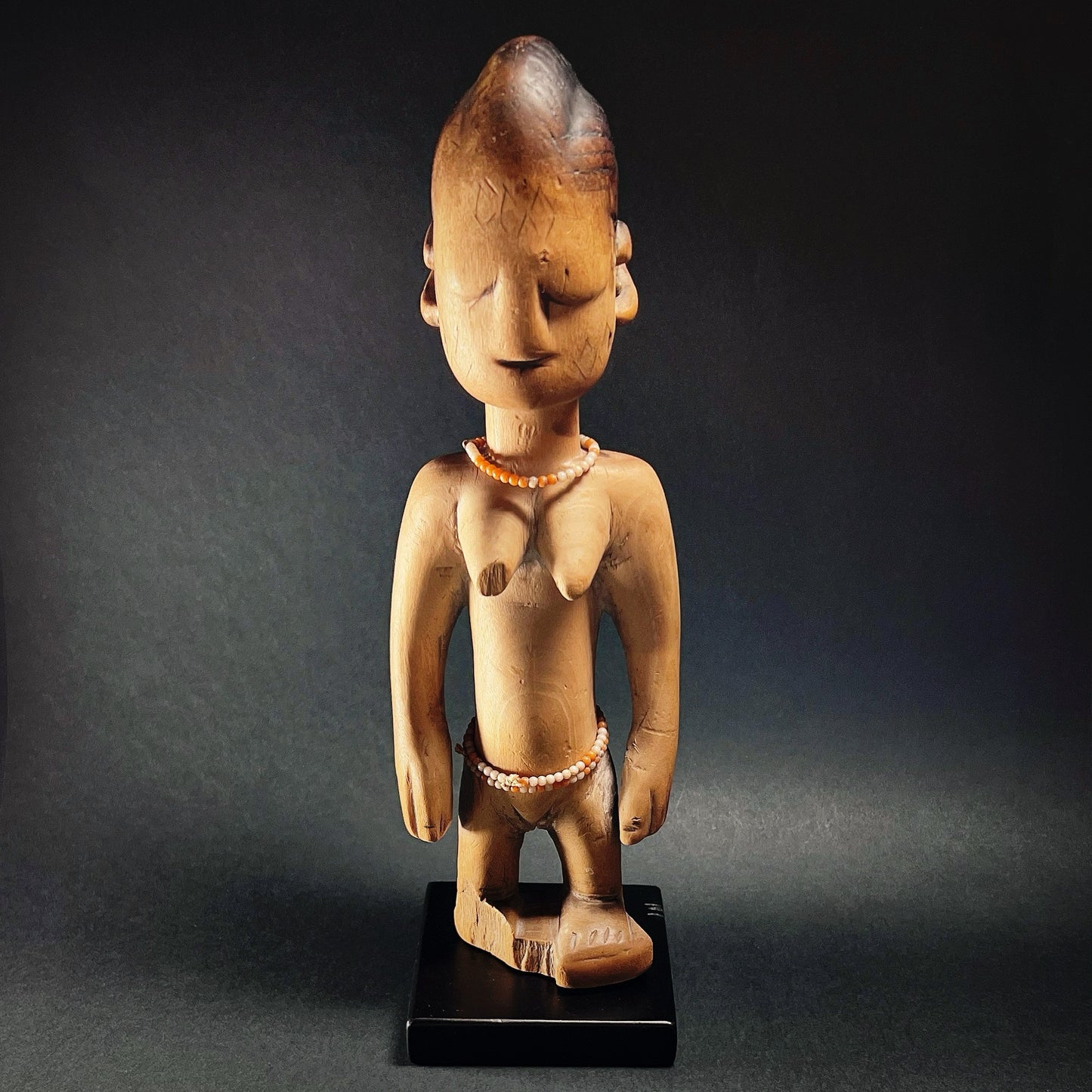
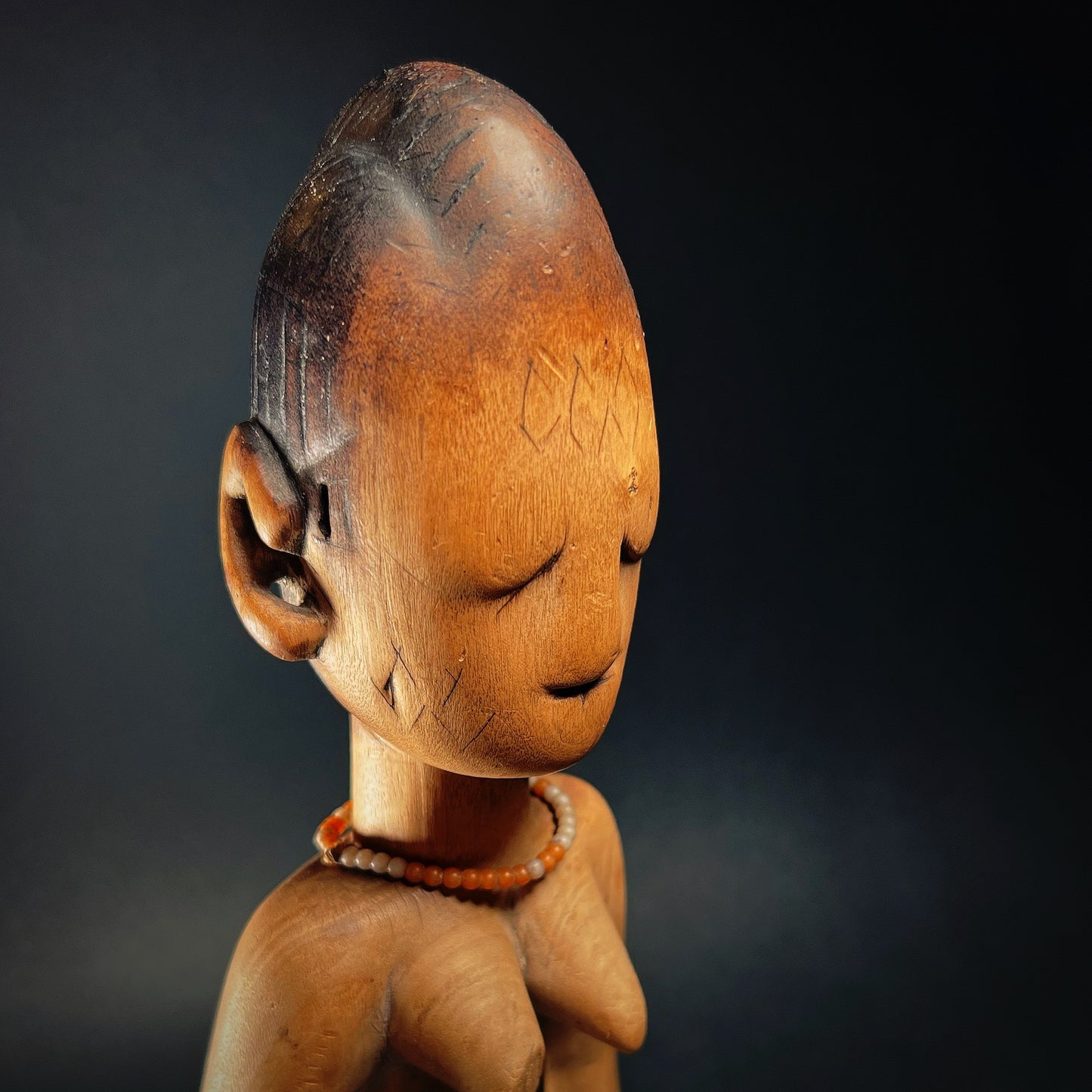
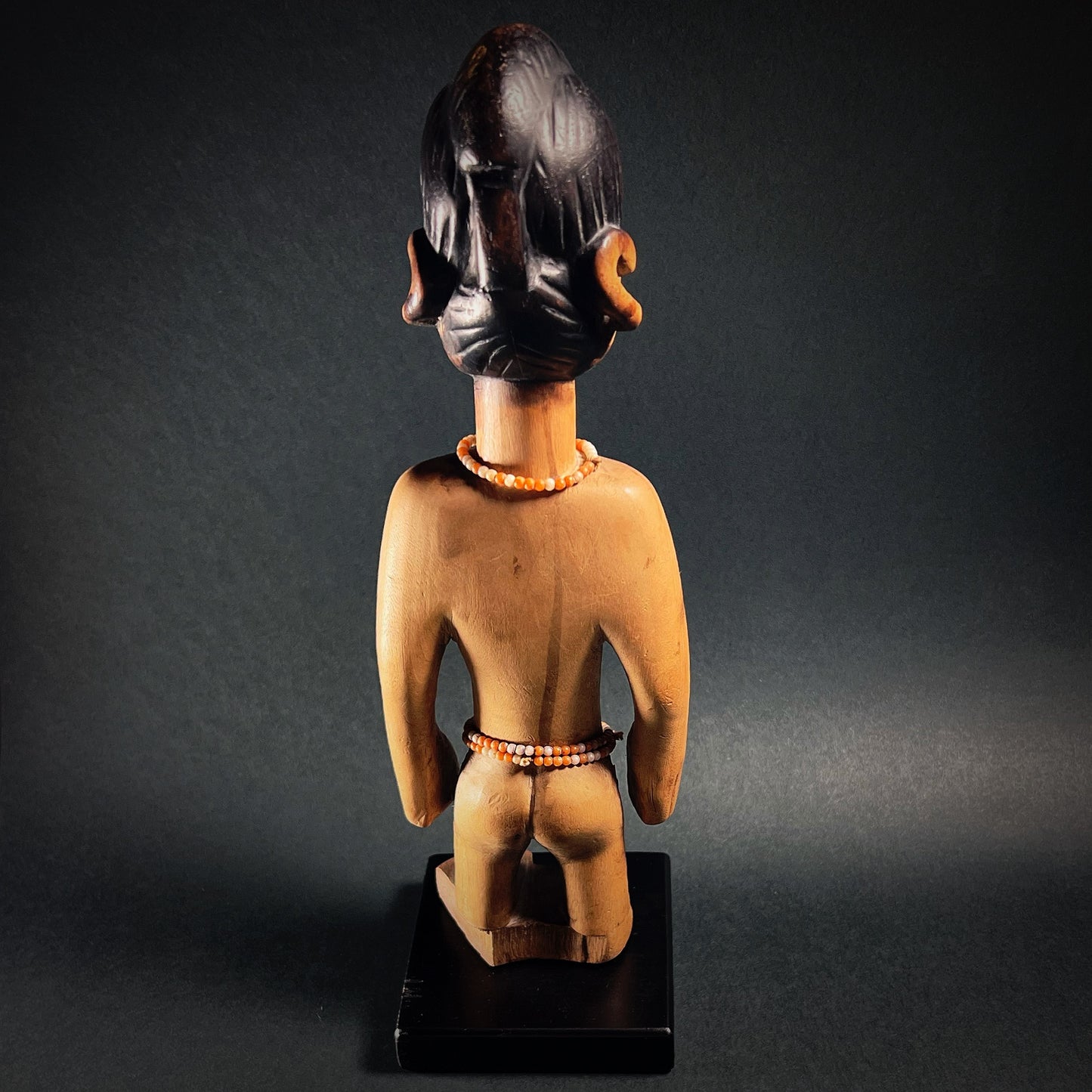
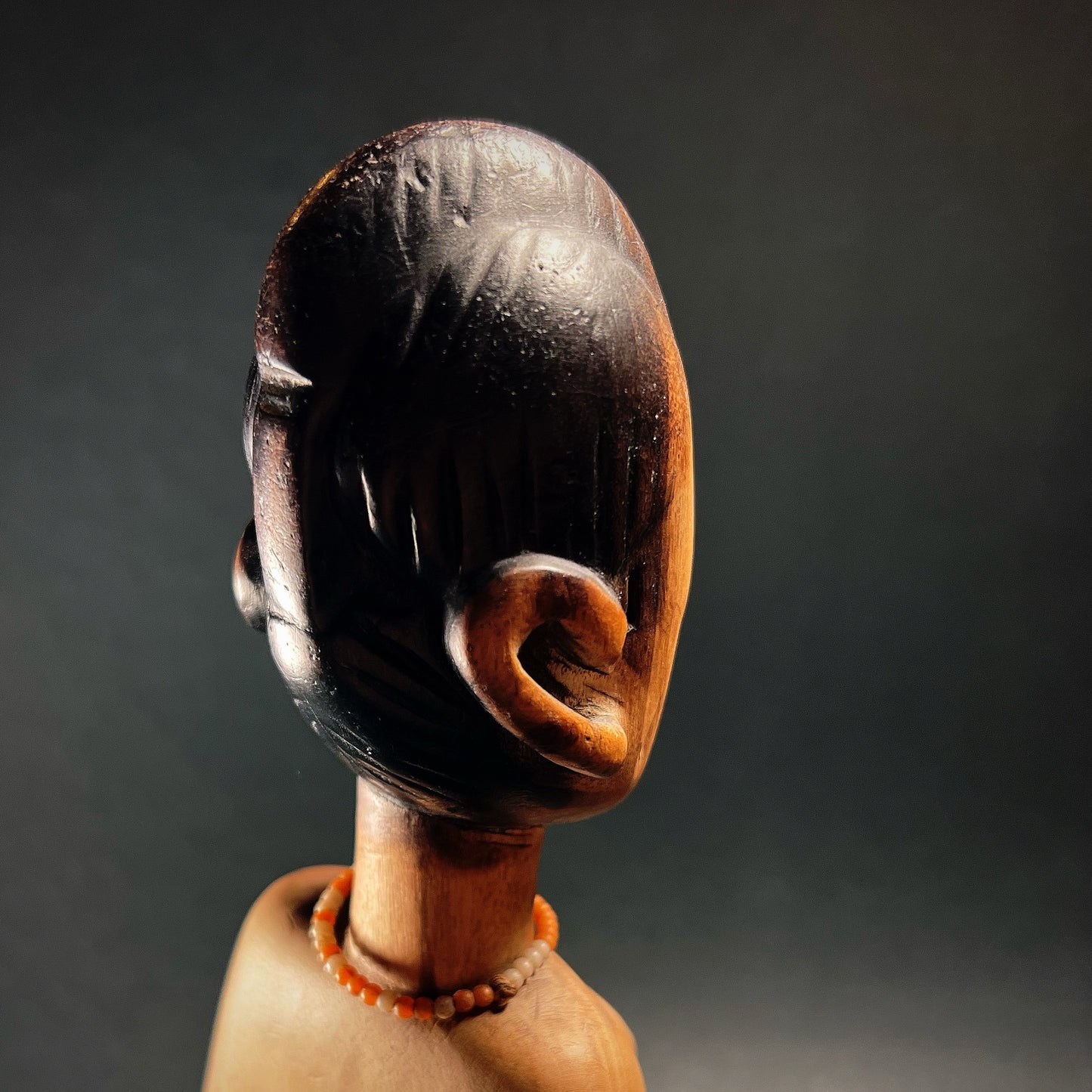
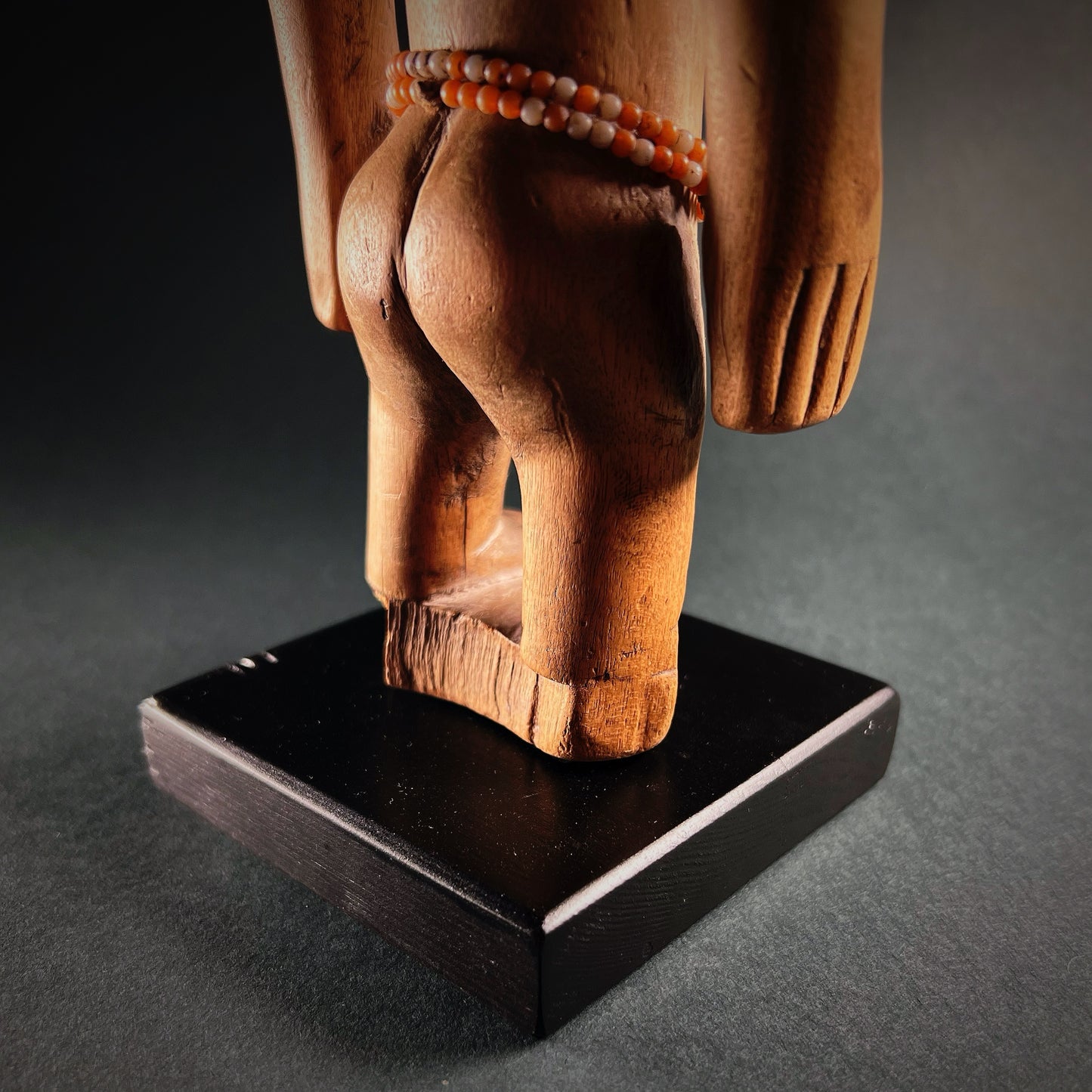
-
Shipping
The shipment will be prepared in the course of 3-5 days and dispatched via Posti Group Oyj or purchased item(s) can be picked up from our shop during the store's opening hours (Tarkk’ampujankatu 4, 00140, Helsinki, Finland). Within the Finland, all items are shipped via Posti Group Oyj unless otherwise requested. We pack the items carefully and mainly in recycled materials because we want to save nature. You will receive the tracking number for your items by e-mail.
-
Returns
Returns and exchange will be accepted within fourteen days (14) of receipt at the purchaser’s cost to include freight and packaging. Items must be returned in the same condition as when they were shipped, and will not be accepted if damaged or altered in any way. Please inform us via email (info@gotanmaailma.fi) or by calling +358408408352 before sending. We do not accept returns more than 14 days after delivery.
